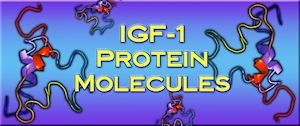Introduction
Testosterone Replacement Therapy (TRT) has become an increasingly popular treatment for men experiencing low testosterone levels, a condition known as hypogonadism. While TRT can significantly improve symptoms such as fatigue, decreased libido, and mood disturbances, it is crucial to understand its impact on reproductive health. This article delves into the effects of TRT on the reproductive system of American men, providing essential insights for those considering this treatment.
Understanding Testosterone Replacement Therapy
Testosterone Replacement Therapy involves the administration of testosterone to men whose bodies do not produce sufficient amounts of the hormone. TRT can be delivered through various methods, including injections, gels, patches, and implants. The primary goal of TRT is to restore testosterone levels to a normal range, thereby alleviating symptoms associated with low testosterone.
Impact on Sperm Production
One of the most significant concerns regarding TRT is its potential to suppress sperm production. Testosterone is a crucial hormone in the regulation of spermatogenesis, the process by which sperm cells are produced. When exogenous testosterone is introduced into the body, it can inhibit the hypothalamic-pituitary-gonadal (HPG) axis, which is responsible for regulating testosterone production and spermatogenesis. As a result, men undergoing TRT may experience a decline in sperm count, which can lead to infertility.
Fertility Considerations
For men who are planning to start a family, the impact of TRT on fertility is a critical consideration. It is advisable for men to consult with a fertility specialist before initiating TRT. In some cases, alternative treatments or temporary cessation of TRT may be recommended to preserve fertility. Additionally, men can explore options such as sperm banking before starting TRT to ensure they have viable sperm available for future use.
Monitoring and Management
Regular monitoring is essential for men undergoing TRT to assess its impact on reproductive health. Healthcare providers typically conduct periodic blood tests to measure testosterone levels and monitor sperm counts. If a significant decline in sperm production is observed, adjustments to the TRT regimen may be necessary. In some instances, the addition of medications such as human chorionic gonadotropin (hCG) can help maintain sperm production while continuing TRT.
Potential for Reversibility
The good news is that the effects of TRT on sperm production are often reversible. Once TRT is discontinued, the HPG axis typically resumes normal function, and sperm production can recover. However, the time required for full recovery can vary among individuals, and some men may experience persistent fertility issues even after stopping TRT. Therefore, it is crucial for men to discuss their fertility goals with their healthcare provider before starting TRT.
Psychological and Emotional Impact
Beyond the physical effects, TRT can also have psychological and emotional implications for men, particularly those concerned about their fertility. The possibility of infertility can lead to stress, anxiety, and relationship strain. Open communication with partners and healthcare providers can help manage these emotional challenges and ensure that men receive the support they need throughout their TRT journey.
Conclusion
Testosterone Replacement Therapy offers significant benefits for men with low testosterone levels, but it is essential to consider its impact on reproductive health. By understanding the potential effects on sperm production and fertility, men can make informed decisions about TRT and take steps to preserve their reproductive health. Regular monitoring and open dialogue with healthcare providers are key to managing the effects of TRT and achieving the best possible outcomes.
Contact Us For A Fast And Professional Response

- TRT's Impact on Mental Health in American Men: Benefits, Risks, and Holistic Approaches [Last Updated On: March 12th, 2025] [Originally Added On: March 12th, 2025]
- Testosterone Replacement Therapy: Benefits and Risks for Young American Men with Hypogonadism [Last Updated On: March 18th, 2025] [Originally Added On: March 18th, 2025]
- Optimizing Testosterone Replacement Therapy with Diet and Exercise: A Holistic Approach for American Men [Last Updated On: March 18th, 2025] [Originally Added On: March 18th, 2025]
- TRT Boosts Bone Health in American Males: Benefits and Considerations [Last Updated On: March 18th, 2025] [Originally Added On: March 18th, 2025]
- American Men's Experiences with Testosterone Replacement Therapy: Impacts and Insights [Last Updated On: March 18th, 2025] [Originally Added On: March 18th, 2025]
- Navigating Insurance Coverage for Testosterone Replacement Therapy: A Comprehensive Guide [Last Updated On: March 19th, 2025] [Originally Added On: March 19th, 2025]
- Testosterone Replacement Therapy: Dosage, Methods, and Risks for American Males [Last Updated On: March 19th, 2025] [Originally Added On: March 19th, 2025]
- Testosterone Replacement Therapy: Enhancing Male Health and Vitality in American Men [Last Updated On: March 19th, 2025] [Originally Added On: March 19th, 2025]
- TRT: Benefits, Risks, and Prostate Health Monitoring in American Men [Last Updated On: March 19th, 2025] [Originally Added On: March 19th, 2025]
- Future of TRT: Innovations, Personalization, and Accessibility in American Medicine [Last Updated On: March 20th, 2025] [Originally Added On: March 20th, 2025]
- Economic Impact of Testosterone Replacement Therapy on U.S. Healthcare System [Last Updated On: March 20th, 2025] [Originally Added On: March 20th, 2025]
- TRT and Holistic Health: Enhancing American Men's Wellness with Alternative Therapies [Last Updated On: March 21st, 2025] [Originally Added On: March 21st, 2025]
- TRT in American Men: Masculinity, Stigma, and Healthcare Dynamics [Last Updated On: March 21st, 2025] [Originally Added On: March 21st, 2025]
- TRT Enhances Sleep Quality in American Males with Low Testosterone [Last Updated On: March 21st, 2025] [Originally Added On: March 21st, 2025]
- Testosterone Replacement Therapy: Enhancing Mood in American Males [Last Updated On: March 22nd, 2025] [Originally Added On: March 22nd, 2025]
- TRT: Enhancing Weight Management in American Males Through Holistic Approach [Last Updated On: March 22nd, 2025] [Originally Added On: March 22nd, 2025]
- Hypogonadism and TRT: Benefits, Risks, and Lifestyle Impact on American Males [Last Updated On: March 23rd, 2025] [Originally Added On: March 23rd, 2025]
- TRT's Impact on Immune Function in American Men: Benefits and Risks [Last Updated On: March 23rd, 2025] [Originally Added On: March 23rd, 2025]
- TRT's Role in Managing Diabetes: Insights for American Men [Last Updated On: March 23rd, 2025] [Originally Added On: March 23rd, 2025]
- TRT Benefits for American Males: Enhancing Skin Health and Elasticity [Last Updated On: March 23rd, 2025] [Originally Added On: March 23rd, 2025]
- Managing Side Effects of Testosterone Replacement Therapy in American Males [Last Updated On: March 24th, 2025] [Originally Added On: March 24th, 2025]
- Testosterone Replacement Therapy: Benefits, Risks, and Management for Aging Males [Last Updated On: March 24th, 2025] [Originally Added On: March 24th, 2025]
- Testosterone Replacement Therapy: Enhancing Muscle Mass in American Men [Last Updated On: March 24th, 2025] [Originally Added On: March 24th, 2025]
- TRT's Potential to Enhance Cognitive Function in American Men: An Overview [Last Updated On: March 24th, 2025] [Originally Added On: March 24th, 2025]
- TRT: Benefits for American Males and Its Impact on Vision Health [Last Updated On: March 24th, 2025] [Originally Added On: March 24th, 2025]
- Testosterone Replacement Therapy: Monitoring, Adjusting, and Lifestyle for American Males [Last Updated On: March 24th, 2025] [Originally Added On: March 24th, 2025]
- Testosterone Replacement Therapy: Combating Fatigue in American Men [Last Updated On: March 24th, 2025] [Originally Added On: March 24th, 2025]
- TRT: Enhancing Emotional Well-being in American Men with Low Testosterone [Last Updated On: March 24th, 2025] [Originally Added On: March 24th, 2025]
- TRT's Impact on Cardiovascular Health in American Men: Benefits and Risks [Last Updated On: March 24th, 2025] [Originally Added On: March 24th, 2025]
- TRT's Impact on Male Fertility: Risks, Strategies, and Lifestyle Considerations [Last Updated On: March 24th, 2025] [Originally Added On: March 24th, 2025]
- TRT and Hair Loss: Understanding Risks and Management Strategies for American Men [Last Updated On: March 25th, 2025] [Originally Added On: March 25th, 2025]
- TRT's Impact on Digestive Health in American Men: A Comprehensive Overview [Last Updated On: March 25th, 2025] [Originally Added On: March 25th, 2025]
- TRT Benefits for Joint Health in American Males: A Comprehensive Overview [Last Updated On: March 25th, 2025] [Originally Added On: March 25th, 2025]
- TRT Enhances Injury Recovery in American Males: Benefits and Considerations [Last Updated On: March 25th, 2025] [Originally Added On: March 25th, 2025]
- Testosterone Replacement Therapy: Benefits, Risks, and Management for American Men [Last Updated On: March 25th, 2025] [Originally Added On: March 25th, 2025]
- TRT Enhances Cognitive Function and Mental Clarity in American Men [Last Updated On: March 26th, 2025] [Originally Added On: March 26th, 2025]
- TRT: A Promising Approach to Managing Chronic Pain in American Males [Last Updated On: March 26th, 2025] [Originally Added On: March 26th, 2025]
- Testosterone Replacement Therapy: Benefits, Risks, and Latest Research for American Men [Last Updated On: March 26th, 2025] [Originally Added On: March 26th, 2025]
- Testosterone Replacement Therapy: Benefits, Risks, and Management for American Men [Last Updated On: March 26th, 2025] [Originally Added On: March 26th, 2025]
- Testosterone Replacement Therapy: Enhancing Stamina in American Males [Last Updated On: March 26th, 2025] [Originally Added On: March 26th, 2025]
- TRT's Impact on Liver Health: Monitoring and Managing Risks [Last Updated On: March 26th, 2025] [Originally Added On: March 26th, 2025]
- Testosterone Replacement Therapy: Costs, Benefits, and Accessibility for American Men [Last Updated On: March 27th, 2025] [Originally Added On: March 27th, 2025]
- Testosterone Replacement Therapy: A Promising Treatment for Depression in American Males [Last Updated On: March 27th, 2025] [Originally Added On: March 27th, 2025]
- TRT's Potential Benefits for Respiratory Health in American Men: A Comprehensive Overview [Last Updated On: March 27th, 2025] [Originally Added On: March 27th, 2025]
- TRT: A Solution for Low Libido in American Males - Benefits, Safety, and Future [Last Updated On: March 27th, 2025] [Originally Added On: March 27th, 2025]
- TRT and Blood Pressure: Monitoring and Management Strategies for American Men [Last Updated On: March 28th, 2025] [Originally Added On: March 28th, 2025]
- Maximizing TRT Benefits: Diet, Exercise, Sleep, and Stress Management for American Males [Last Updated On: March 29th, 2025] [Originally Added On: March 29th, 2025]
- TRT: Managing Stress and Enhancing Well-being in American Males [Last Updated On: March 29th, 2025] [Originally Added On: March 29th, 2025]
- TRT's Impact on Kidney Function: Benefits and Risks for American Males [Last Updated On: March 29th, 2025] [Originally Added On: March 29th, 2025]
- Testosterone Replacement Therapy: Enhancing Confidence and Well-being in American Males [Last Updated On: March 30th, 2025] [Originally Added On: March 30th, 2025]
- Choosing the Right TRT Clinic: Key Factors for American Males [Last Updated On: March 30th, 2025] [Originally Added On: March 30th, 2025]
- Testosterone Replacement Therapy: Side Effects and Risks for American Men [Last Updated On: March 31st, 2025] [Originally Added On: March 31st, 2025]
- TRT's Complex Effects on Blood Sugar in American Men: A Comprehensive Analysis [Last Updated On: April 1st, 2025] [Originally Added On: April 1st, 2025]
- TRT's Impact on Cholesterol: Insights for American Males on Therapy [Last Updated On: April 1st, 2025] [Originally Added On: April 1st, 2025]
- TRT's Impact on Thyroid Function: Essential Insights for American Men [Last Updated On: April 4th, 2025] [Originally Added On: April 4th, 2025]
- Testosterone Replacement Therapy: Enhancing Health and Vitality in American Males [Last Updated On: April 5th, 2025] [Originally Added On: April 5th, 2025]
- Exploring TRT: Benefits, Risks, and Ethics for American Male Athletes [Last Updated On: April 8th, 2025] [Originally Added On: April 8th, 2025]
- Maximizing Health: Integrating TRT with Lifestyle and Pharmacological Therapies for American Males [Last Updated On: April 8th, 2025] [Originally Added On: April 8th, 2025]
- Understanding Allergic Reactions in Testosterone Replacement Therapy: Risks and Management [Last Updated On: April 9th, 2025] [Originally Added On: April 9th, 2025]
- TRT's Impact on Dental Health: Insights for American Men [Last Updated On: April 9th, 2025] [Originally Added On: April 9th, 2025]
- TRT and Hearing Health: Considerations for American Males [Last Updated On: April 9th, 2025] [Originally Added On: April 9th, 2025]
- TRT: Boosting Social Confidence and Relationships in American Males [Last Updated On: April 9th, 2025] [Originally Added On: April 9th, 2025]
- Understanding Testosterone Replacement Therapy: Interpreting Lab Results for American Men [Last Updated On: April 10th, 2025] [Originally Added On: April 10th, 2025]
- Traveling with Testosterone Replacement Therapy: A Comprehensive Guide for American Men [Last Updated On: April 10th, 2025] [Originally Added On: April 10th, 2025]
- TRT Benefits for American Men: Enhancing Nail Health and Overall Vitality [Last Updated On: April 10th, 2025] [Originally Added On: April 10th, 2025]
- TRT Benefits for Eye Health in American Men: Dry Eye, AMD, and More [Last Updated On: April 11th, 2025] [Originally Added On: April 11th, 2025]
- Legal Framework and Considerations for Testosterone Replacement Therapy in the U.S. [Last Updated On: April 12th, 2025] [Originally Added On: April 12th, 2025]
- Testosterone Replacement Therapy: Social Implications for American Males [Last Updated On: April 16th, 2025] [Originally Added On: April 16th, 2025]
- TRT's Impact on Chest Health: Benefits, Risks, and Management in American Men [Last Updated On: April 16th, 2025] [Originally Added On: April 16th, 2025]
- Testosterone Replacement Therapy: Psychological Impacts and Support for American Men [Last Updated On: April 16th, 2025] [Originally Added On: April 16th, 2025]
- TRT's Impact on Neck Health: Benefits and Risks for American Men [Last Updated On: April 17th, 2025] [Originally Added On: April 17th, 2025]
- TRT's Impact on Cognitive Function and Artistic Expression in American Males [Last Updated On: April 17th, 2025] [Originally Added On: April 17th, 2025]
- TRT Enhances Foot Health in American Males: Muscle, Bone, and Nerve Benefits [Last Updated On: April 17th, 2025] [Originally Added On: April 17th, 2025]
- TRT's Impact on Hand Health: Benefits, Risks, and Management for American Men [Last Updated On: April 18th, 2025] [Originally Added On: April 18th, 2025]
- Ethical Challenges in Testosterone Replacement Therapy: Consent, Access, and Misuse [Last Updated On: April 18th, 2025] [Originally Added On: April 18th, 2025]
- TRT: Boosting Work Performance in American Males with Low Testosterone [Last Updated On: April 18th, 2025] [Originally Added On: April 18th, 2025]
- TRT: Enhancing Back Health in American Males Through Testosterone Therapy [Last Updated On: April 20th, 2025] [Originally Added On: April 20th, 2025]

















